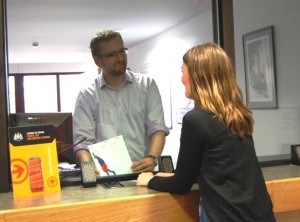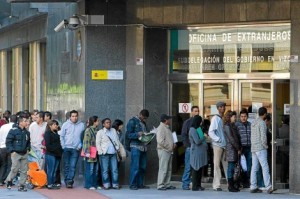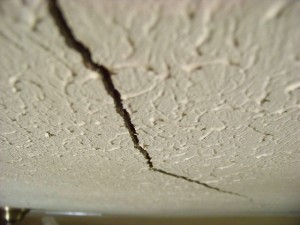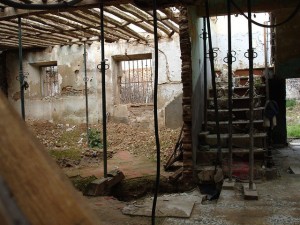The new co-payments system has been functioning since July 1 and it is now clear that: Pensioners with an income below €18,000 pay 10% toward the cost up to a maximum of €8 per month. Pensioners with an income above €18,000 but below €100,000 pay 10% toward the cost up to a maximum of €18 per month. Pensioners with an income above €100,000 pay 10% toward the cost up to a maximum of €60 per month. Non-pensioners with an income below €18,000 pay 40% toward the cost with no maximum. Non-pensioners with an income above €18,000 but below €100,000 pay 50% toward the cost with no maximum. Non-pensioners with an income above €100,000 pay 60% toward the cost with no maximum. Your … [Read more...] about Disentangling Spain’s new medical prescription co-payment process
abaco
New co-payment scheme for Spanish medical prescriptions
This is the information we are aware of at the time of writing. On July 1 a co-payment system for prescriptions in Spain was introduced. Everyone now has to make a contribution towards the cost of medical prescriptions in Spain according to their income. This new co-payment system is being implemented in two stages: Stage 1 From July 1 anyone given a prescription in Spain should notice that it will include the percentage of the cost of the medication that they have to pay. This percentage will be taken from information about your income obtained from the annual resident tax declaration (IRPF). Anyone with an income greater than €18,000 a year will have to pay half the cost of the … [Read more...] about New co-payment scheme for Spanish medical prescriptions
Despite slump, Scandinavians still show interest in Spanish real estate
Sweden is one country where people still seem to be buying property in Spain, primarily as holiday homes. After all, with continuous darkness in some parts of Sweden during the winter months you can understand why buying a €60,000 to €120,000 house in the sun is such a desirable prospect. "The Swedish and Norwegians are definitely buying," says Oscar, a Swedish conveyancing expert at Ábaco. So for those interested in selling a property, what are they looking for? "They usually want somewhere that’s not too isolated and a property that is in good order. They like things to be tidy and to work. They are quite particular about what they’re buying and you can expect some searching … [Read more...] about Despite slump, Scandinavians still show interest in Spanish real estate
Embassies and consulates in Spain
Here we take a look at the differences between embassies and consulates and their functions. What does an embassy do? The function of the embassy is to protect the interests of a country in the country the embassy is located. Its activities might include: • Negotiating with the host country’s government • Promoting a good relationship between the two countries • Formulating methods of encouraging economic, cultural and scientific growth • Preparing treaties (commercial and political) • Organising state visits There is only one embassy of a particular country to be found in a host country and it is usually located in the capital city. Spanish and foreign consulates There can be … [Read more...] about Embassies and consulates in Spain
From abroad or in Spain? Obtaining a foreigner’s identification number
You need an NIE if you live in Spain. Your foreigner’s identification number (Número de Identificación de Extranjeros) is the key to everything from buying your home to collecting your mail. It can also be essential for the non-resident too. If you want to make a house purchase or you have been left Spanish property in a relative’s will you need an NIE to make the transaction. If you need to get an NIE as quickly as possible then you may prefer not to have to travel to Spain at all. Until 2011 it was possible to obtain a power of attorney in your home country which enabled someone in Spain to act on your behalf and obtain the NIE for you. However, in April 2011 a new regulation stipulated … [Read more...] about From abroad or in Spain? Obtaining a foreigner’s identification number
Buying a home in Spain: Dealing with new property defects
The builder or developer has to take full responsibility for any defects, hidden or visible. The finished product is down to them whether it’s an electrical, plumbing or structural fault, though the claim period does vary depending on the extent and severity of the problem. For example, simple defects related to the finishing, such as doors and floor tiles are covered for one year, while structural defects relating to the safety, integrity and inhabitability of the property are covered for up to 10. It is important that you make your claim as soon as you can after spotting the defect. For structural claims your builder is required to take out insurance and may also have taken out … [Read more...] about Buying a home in Spain: Dealing with new property defects
Refurbishing your Spanish property
Permission comes in the form of a building licence and is a very important document if you want to be sure that your extension stays extended. If you are considering anything from an outside shed to a major refurbishment you should check that: You have permission from the Town Hall in the form of a building licence. Any works you have done are included in your Title Deed. The Catastro has been informed. Permission should be obtained before the builder starts work. Your builder is unlikely to draw your attention to the need for a licence and if they claim to have already obtained one, ask to see it. They cannot apply for one without you knowing and if a problem emerges later it … [Read more...] about Refurbishing your Spanish property
How to complain in Spain
Hopefully, once you’ve asked for the ‘hoja’ the problem will be rectified and there will be no need to take it further. However, if the reason for your complaint remains, then the next stage is to write it down on the hoja, clearly outlining the issue from your point of view. It is better, but not essential, if you can complete it in Spanish. An entry in the hoja You will need to include: A straight forward and simple account of the cause of your complaint and how you would like it resolved e.g. refund, exchange, repair. Date and time. Personal details – someone will need to get in touch with you. It’s then up to whoever you are complaining about to fill in their explanation … [Read more...] about How to complain in Spain
Spanish property auctions
The following information about what is involved has been supplied by ‘Spanish Property Auctions.’ Auction house practice will differ. What does the auctioneer do? In most cases they will take clients to view homes, give them advice on legal matters, help them find mortgages and point them in the right direction when they need it. Who benefits from a property auction? It tends to be people who have tried the traditional estate agent route and it hasn’t worked. They’re probably keen to sell-up as quickly as possible. For the buyer the advantage is the number of bargain properties on sale. What are the safeguards? You can arrange to inspect the documents for a possible purchase prior to … [Read more...] about Spanish property auctions
Who’s who in the Spanish property buying minefield
Because of this it is worth seeking the advice of professionals. That doesn’t mean that everything will always go smoothly, but usually at least you have a method of complaining if it doesn’t. The variety of professionals available to help can also be rather confusing. Here we’ve compiled a little glossary to help you with the titles of the legal and financial people that you might need to use. Abogado – The abogado is a Spanish lawyer - a trained professional who can check the legal status of your documents, carry out inheritance instructions and complete the usual kinds of tasks you would expect of a solicitor in the UK. Notario – The notary is a public official who does not act on … [Read more...] about Who’s who in the Spanish property buying minefield









